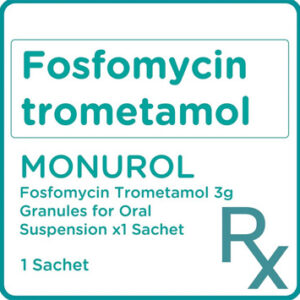Terramycin is a medication that belongs to the class of antibiotics known as tetracyclines. It is widely used in both human and veterinary medicine for the treatment of various bacterial infections. The active ingredient in Terramycin is oxytetracycline, which works by inhibiting the growth and multiplication of bacteria, thereby helping to eliminate the infection.
Terramycin is available in several different forms, including ointments, eye drops, and oral capsules. Each form of the medication is specifically formulated to treat infections in different parts of the body.
Safety Measures
While Terramycin is generally safe and effective when used according to the prescribed guidelines, there are certain situations where its use may not be suitable. It is important to exercise caution and consult a healthcare professional before taking Terramycin if:
- You have a known allergy or hypersensitivity to tetracycline antibiotics.
- You are pregnant or planning to become pregnant.
- You are breastfeeding.
- You have a history of liver or kidney disease.
- You have a history of gastrointestinal problems, such as ulcerative colitis.
Side Effects and Solutions
Common side effects of Terramycin may include:
- Nausea and vomiting
- Diarrhea
- Loss of appetite
- Headache
- Dizziness
If these side effects occur, they are usually mild and resolve on their own. However, if they persist or worsen, it is important to consult a healthcare professional. In rare cases, more serious side effects may occur, such as allergic reactions, severe stomach cramps, or changes in vision. If any of these occur, immediate medical attention should be sought.
How to Take It
Terramycin should be taken exactly as prescribed by a healthcare professional. The specific dosage and duration of treatment will depend on the type and severity of the infection being treated. It is important to complete the full course of treatment, even if symptoms improve before completion.
If a dose is missed, it should be taken as soon as possible. However, if it is almost time for the next scheduled dose, the missed dose should be skipped and the regular dosing schedule should be resumed. Taking a double dose to make up for a missed one is not recommended.
An overdose of Terramycin can lead to symptoms such as severe nausea and vomiting, dizziness, and abdominal pain. If an overdose is suspected, immediate medical attention should be sought.
Terramycin and Other Medications
Terramycin may interact with certain medications, leading to potentially harmful effects or reducing the effectiveness of either medication. It is important to inform a healthcare professional about all current medications, including prescription, over-the-counter, and herbal supplements, before starting treatment with Terramycin.
Some medications that may interact with Terramycin include:
| Medication | Potential Interaction |
|---|---|
| Antacids containing aluminum, calcium, or magnesium | May reduce the absorption of Terramycin |
| Penicillin antibiotics | May reduce the effectiveness of Terramycin |
| Warfarin (blood thinner) | May increase the risk of bleeding |
| Oral contraceptives | May reduce their effectiveness |
The Answers You Need
- 1. Can Terramycin be used to treat viral infections?
- 2. Can Terramycin be used in children?
- 3. Can Terramycin be taken with food?
- 4. Can Terramycin cause photosensitivity?
- 5. Can Terramycin be used during pregnancy?
No, Terramycin is an antibiotic and is only effective against bacterial infections. It does not have any effect on viral infections.
Terramycin can be used in children, but the dosage and treatment duration will be determined by a healthcare professional based on the child’s age, weight, and the type of infection being treated.
Terramycin can be taken with or without food. However, certain foods and beverages, such as dairy products, calcium-fortified juices, and antacids, may reduce its absorption. It is recommended to take Terramycin on an empty stomach, at least one hour before or two hours after meals.
Yes, Terramycin may increase the skin’s sensitivity to sunlight and UV radiation. It is important to take appropriate sun protection measures, such as wearing sunscreen and protective clothing, while using Terramycin.
Terramycin should be used during pregnancy only if the potential benefits outweigh the potential risks. It is important to consult a healthcare professional before using Terramycin during pregnancy.





Reviews
There are no reviews yet.